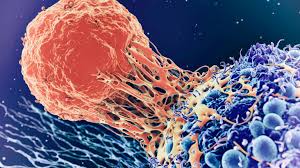Cancer remains a global health challenge, with prevention being one of the most effective ways to reduce its impact. These steps focus on lifestyle changes, regular screening, and environmental awareness, providing a comprehensive guide for individuals of all ages. Here are a few actionable steps individuals can take to minimize their risk of developing cancer:
Maintain a Healthy Lifestyle
Adopting a healthy lifestyle plays a significant role in cancer prevention. The diet is a primary factor. Prioritize a diet rich in fruits, vegetables, whole grains, and lean proteins. Foods high in antioxidants, fiber, and essential nutrients can protect cells and reduce the likelihood of developing certain cancers. Minimize consumption of processed foods, sugary drinks, and red or processed meats, as these have been linked to increased risk.
Aim for at least 150 minutes of moderate exercise or 75 minutes of vigorous exercise each week. Activities like walking, cycling, swimming, and dancing contribute to overall well-being and help maintain a healthy weight, reducing the risk of cancers associated with obesity.
Limiting alcohol consumption also reduces risk. Alcohol use is closely tied to specific cancers, including liver, breast, and throat cancers. For individuals who choose to drink, reduced intake can significantly lower risk.
Prioritize Regular Medical Screening
Early detection increases the likelihood of successful cancer treatment, making regular screenings a key preventive measure. Different cancers require specific screening tests, and the appropriate approach depends on age, gender, and family history.
Women and people assigned female at birth aged 21 to 65 should receive regular Pap smears to detect cervical cancer, while mammograms typically begin at age 40 or 50 to screen for breast cancer. Men and people assigned male at birth might benefit from regular prostate exams starting at age 50, depending on risk factors.
Speak with a healthcare provider to develop a personalized screening plan based on medical history and risk factors. Individuals with a strong family history of cancer or genetic predispositions might also benefit from genetic counseling and additional testing.
Limit Exposure to Environmental Risks
Reducing exposure to carcinogenic substances in the environment can significantly decrease risk. Sun exposure is a major preventable cause of skin cancer. Protect yourself by using sunscreen with at least SPF 30, wearing protective clothing, and seeking shade during peak sunlight hours.
Minimizing exposure to harmful chemicals and pollutants is equally significant. Avoid prolonged exposure to asbestos, radon gas, and industrial chemicals known to increase risk.
At home, test for radon and eliminate potential sources of exposure. Follow safety guidelines when working with hazardous substances in occupational settings. Air quality also impacts risk. Limit exposure to secondhand smoke and reduce air pollution exposure by avoiding outdoor activities in areas with high pollution levels. Accessing clean water and safe food sources further reduces contamination risks associated with foodborne and waterborne carcinogens.
Find a Cancer Specialist
Preventing cancer involves proactive choices that impact long-term health over a lifetime. Maintaining a balanced lifestyle, prioritizing regular medical check-ups, and reducing environmental exposure all contribute to lowering risk.
Staying informed about risk factors and preventive measures empowers individuals to take charge of their health. By integrating these measures into daily life, you can proactively protect your health and well-being across all ages.
Related Articles
Combining Cardio and Strength Training for Optimal Fitness Results
The Evolution of CT Scans in Cancer Imaging
How an Emergency Dentist Can Treat Sudden Tooth Pain
The Role of Pediatric Neurology in Diagnosing Epilepsy in Children





